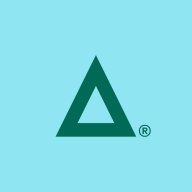

SonarQube Server and Fortra's Digital Defense Frontline WAS compete in application security and vulnerability management. SonarQube Server seems to have an edge in adaptability and community support, while Frontline WAS offers advanced security features for comprehensive threat detection.
Features: SonarQube Server provides static code analysis, detects vulnerabilities in code, and offers insights for code improvement. Fortra's Digital Defense Frontline WAS provides advanced threat intelligence, comprehensive visibility into application vulnerabilities, and real-time threat detection and response.
Ease of Deployment and Customer Service: SonarQube Server offers straightforward deployment with seamless CI/CD integration and extensive community resources. Fortra's Digital Defense Frontline WAS focuses on cloud-based deployment, ensuring hassle-free implementation and robust customer support with quick response times and proactive assistance.
Pricing and ROI: SonarQube Server offers a flexible pricing model for various project sizes, delivering ROI through improved code quality and reduced technical debt. Fortra's Digital Defense Frontline WAS positions itself as a premium solution with pricing reflecting its advanced security features, justifying the higher initial cost for organizations prioritizing extensive vulnerability management.

Fortra's Digital Defense Frontline Web Application Scanner (WAS) is an easy-to-use security solution that provides prioritized vulnerability reporting and technical recommendations so your remediation team can tackle the biggest threats, first. Frontline WAS easily runs dynamic web application tests with accurate results, not matter how much your web apps change.
SonarQube Server enhances code quality and security via static code analysis. It detects vulnerabilities, improves standards, and reduces technical debt, integrating into CI/CD pipelines.
SonarQube Server is a comprehensive tool for enhancing code quality and security. It offers static code analysis to identify vulnerabilities, improve coding standards, and reduce technical debt. By integrating into CI/CD pipelines, it provides automated checks for adherence to best practices. Organizations use it for code inspection, security testing, and compliance, ensuring development environments with better maintainability and fewer issues.
What are the key features of SonarQube Server?Many industries implement SonarQube Server to uphold coding standards, maintain security protocols, and streamline their software development lifecycle. In sectors like finance and healthcare, adhering to regulations and ensuring reliable software is critical, making SonarQube Server invaluable. It is often integrated into CI/CD pipelines, ensuring that code changes meet set standards before deployment. This approach enhances productivity and maintains compliance with industry-specific requirements.
We monitor all Application Security Tools reviews to prevent fraudulent reviews and keep review quality high. We do not post reviews by company employees or direct competitors. We validate each review for authenticity via cross-reference with LinkedIn, and personal follow-up with the reviewer when necessary.